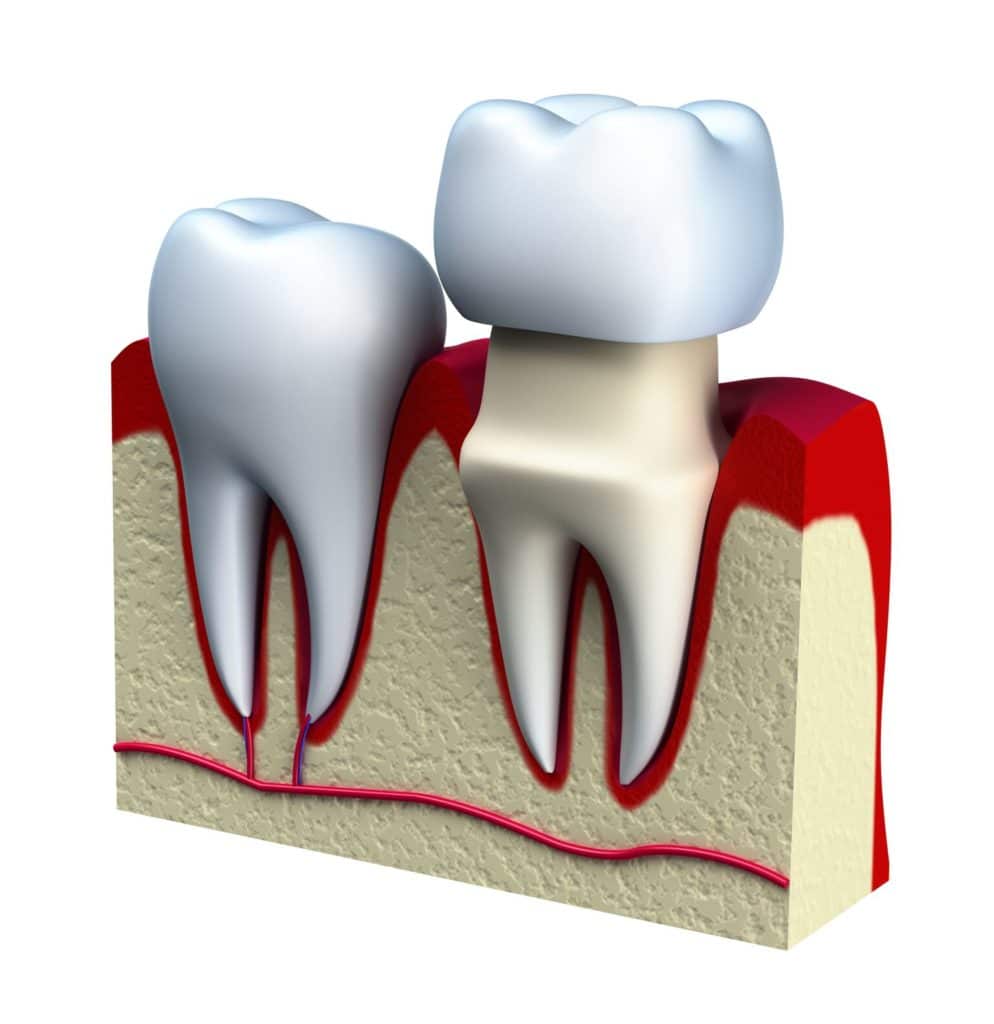WHAT IS A DENTAL CROWN?
Dental crowns are natural-looking, tooth-shaped caps that cover a damaged or missing tooth, restoring a full and beautiful smile. Dentists cement these caps into place to provide both strong and visibly appealing replacements for natural teeth. Crowns are usually necessary when the tooth is broken down to the point where a filling will not be effective. Dental crowns are a very reliable solution for major dental problems that have resulted in a severely damaged or missing tooth.





